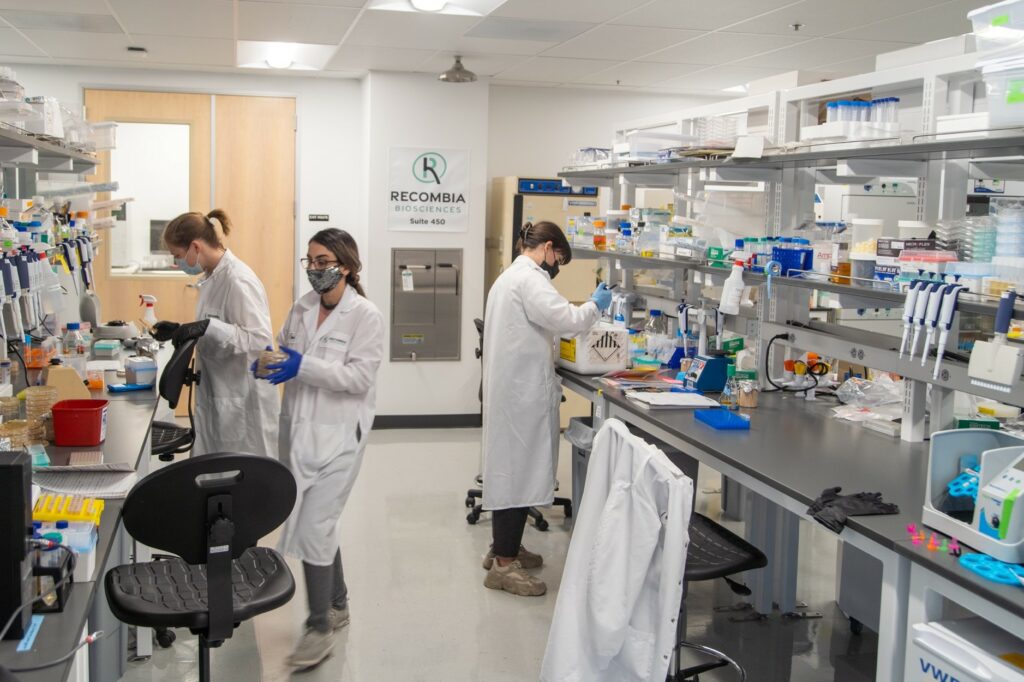Lesaffre, a global key player in the field of fermentation for nearly 170 years, today announces the acquisition of Recombia Biosciences, a biotechnology company based in the San Francisco Bay Area and founded in 2019 based on technology licensed from Stanford University. This acquisition is the culmination of a strategic partnership initiated in 2020 to leverage Recombia Biosciences’ genome-editing technologies and accelerate the development of yeasts for sustainable production of fermented ingredients. The partnership marked Lesaffre’s entry into the world of Synthetic Biology, considered to be one of the largest biotechnology opportunities of this decade.
Over the past two years, Recombia and Lesaffre have joined forces to design and develop new innovative yeast strains and to optimize the production of several biosourced ingredients and biofuels.
For Lesaffre, the acquisition of Recombia Biosciences is part of a comprehensive strategy to invest heavily in research and development to unlock the full potential of microorganisms, such as yeast or beneficial bacteria.
“With the acquisition of Recombia Biosciences, we are enriching the group’s portfolio of cutting-edge technologies to accelerate innovation in yeast development and production, and we are surrounding ourselves with new talent that we warmly welcome. Innovation is part of Lesaffre’s DNA. This acquisition is a perfect illustration of Lesaffre’s mission: working together to better nourish and protect the planet”, says Brice-Audren Riché, Lesaffre’s CEO.
Continuing the growth dynamic of Recombia Biosciences
Recombia Biosciences will be docked to the Lesaffre Bioengineering Center of Excellence, a major department of the Lesaffre Institute of Science and Technology, the company’s corporate R&D entity made of almost 200 very passionate, international researchers.
Recombia Biosciences will keep its name and will continue to grow dynamically at its location in Brisbane, California. At this stage, Recombia Biosciences’ main mission will be to exploit its high-throughput genome editing and synthetic biology technologies to benefit the diverse businesses of Lesaffre. The future direction of Recombia’s scientific and technology programs will be jointly defined by a specific Lesaffre-Recombia Board chaired by Recombia cofounder Lars Steinmetz.
“We are extremely happy to welcome by our side, highly recognized scientists in the world of high-throughput genome editing and synthetic biology. We are convinced that the collective brain intelligence it will bring will catalyze cutting-edge prospects, particularly in the areas of Health and Environmental protection”, comments Christine M’Rini Puel, Lesaffre Chief R&D Officer.
“I am excited for Recombia to become part of Lesaffre. I believe that by combining our genome editing technologies and synthetic biology skills with Lesaffre’s deep knowledge and experience with fermentation and working with microorganisms at industrial scale, we will be able to achieve a lot together”, says Justin Smith, PhD, Recombia’s CEO.
Cutting-edge innovation
Founded by Justin Smith, Bob St.Onge and Lars Steinmetz, Recombia Biosciences licensed its core technologies from Stanford University. These technologies are unique and based on techniques that increase the efficiency of genome editing and enable very high-throughput strain engineering.
“From our very first discussions we have shared a common vision of how our respective strengths could synergize and create new opportunities. We are very excited to be joining Lesaffre and are looking forward to addressing challenges together with new and innovative fermentation solutions”, declares Bob St.Onge, PhD, Recombia’s COO.
“This acquisition represents a cornerstone on our joint mission to generate the world’s most advanced microorganisms for industrial manufacturing. Becoming part of the Lesaffre family will further allow us to build on our successful foundation of sharing knowledge, technologies, and expertise. Having collaborated with Lesaffre for over 10 years, I am particularly proud of this accomplishment, and I am excited about the opportunities that advanced genome engineering affords in biotechnology”, says Lars Steinmetz, PhD, Recombia’s Chairman of the Board.
The ability to generate thousands of yeast strains in parallel, combined with laboratory automation, will exponentially accelerate the development of projects in the health, environment and energy fields.


